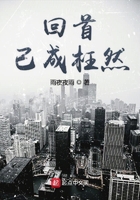她留下了她的鞋,她带走了其它的每样东西,她的牙刷,她的衣服,甚至带走了桌子上我们盛糖果的乏味的银色小花瓶,她把糖果倒在桌子上,却带走了花瓶。我们曾经一起住过的小房间现在似乎有些不一样了,她的生活用品都带走了,这似乎不是真的,房间看上去象不完整的七巧板。壁橱里似乎也空了,里面通常大部分是她的东西。但她的鞋,仍然在那里,在壁橱的底部,仍象以前那样堆放着,每一只都在那里。为什么她把鞋留了下来?她不可能忘记了带走,我太了解她了,她一直以她收藏的鞋为傲,但这些鞋确实留在那里,包括一双她最喜爱的拖鞋。这是一双黑色的,沿鞋帮镶嵌了花边的鞋,鞋底磨损了,柔软的鞋垫上她的脚趾烙印精致而清晰。
我似乎觉得有些可笑,她走出了我的生活,却没有带走她的鞋,这是讽刺我吗?或者我应该思考点什么别的东西?某种程度上我很高兴它们仍在那里,她还会回来找它们,是不是?我是说她怎么能在没有这些鞋的情况下继续她的生活?但她将不会回来了,我知道她不会回来了,她宁愿赤脚在玻璃上走,也不愿意再见到我了。可是,天哪!她留下了她所有的鞋!所有的鞋,运动鞋,长统靴和拖鞋,高跟鞋和木底鞋,每一双。我应该做什么?我应把他们留在那里吗?或者把他们包在一起扔进垃圾桶?我应每天早上边穿衣服边看着他们,并猜测为什么她把鞋留了下来?她知道为什么,她知道她做了什么。我无法把这些鞋扔出去,是怕某一天她会回来找这些鞋。我心里一直无法彻底摆脱她,因为她的鞋一直在我的生活中,我也无法处理掉那些鞋,或忘掉那个曾经穿过那些鞋的人。
她的鞋,在我的心里留下了深深的足迹,我不能将它消除干净。我所能做的,就是凝视着他们和猜想,凝视着他们的花边,鞋带,钮扣和鞋底花纹。他们仍将我和她联系在一起,尽管通过一种奇怪的方式。我可以回忆我们共同拥有的美好时光,在那时她穿的是哪双鞋。这些鞋就是她的,不是别人的,她磨低了鞋跟,穿旧了鞋帮,是她脆弱的足迹镶嵌在鞋垫上!我坐在地板上,这些鞋在身旁,回想她穿着这些鞋走过了多少地方,走了多远的路,当她决定离开我时穿的是哪双鞋?我拿起一双她常穿的高跟鞋,茫然地闻了一下,觉得一点儿也不厌恶,这是我与她最切实的联接!她留在我这儿的最后一点儿实在的东西!她留下了她的鞋,她带走了其它的所有东西,除了她的鞋。它们保存在壁橱的底部,一个保留她记忆的圣地。
The Rose
The old lady had always been proud of the great rose-tree in her garden, and was fond of telling how it had grown from a cutting she had brought years before from Italy, when she was first married. She and her husband had been traveling back in their carriage from Rome ( it was before the time of railways ) and on a bad piece of road south of Siena they had broken down, and had been forced to pass the night in a little house by the road-side. The accommodation was wretched of course; she had spent a sleepless night, and rising early had stood, wrapped up, at her window, with the cool air blowing on her face, to watch the dawn. She could still, after all these years, remember the blue mountains with the bright moon above them, and how a far-off town on one of the peaks had gradually grown whiter and whiter, till the moon faded, the mountains were touched with the pink of the rising sun, and suddenly the town was lit as by an illumination, one window after another catching and reflecting the sun’s beam, till at last the whole little city twinkled and sparkled up in the sky like a nest of stars.
That morning, finding they would have to wait while their carriage was being repaired, they had driven in a local conveyance up to the city on the mountain, where they had been told they would find better quarters; and there they had stayed two or three days. It was one of the miniature Italian cities with a high church, a pretentious piazza, a few narrow streets and little palaces, perched, all compact and complete, on the top of a mountain, within and enclosure of walls hardly larger than an English kitchen garden. But it was full of life and noise, echoing all day and all night with the sounds of feet and voices.















